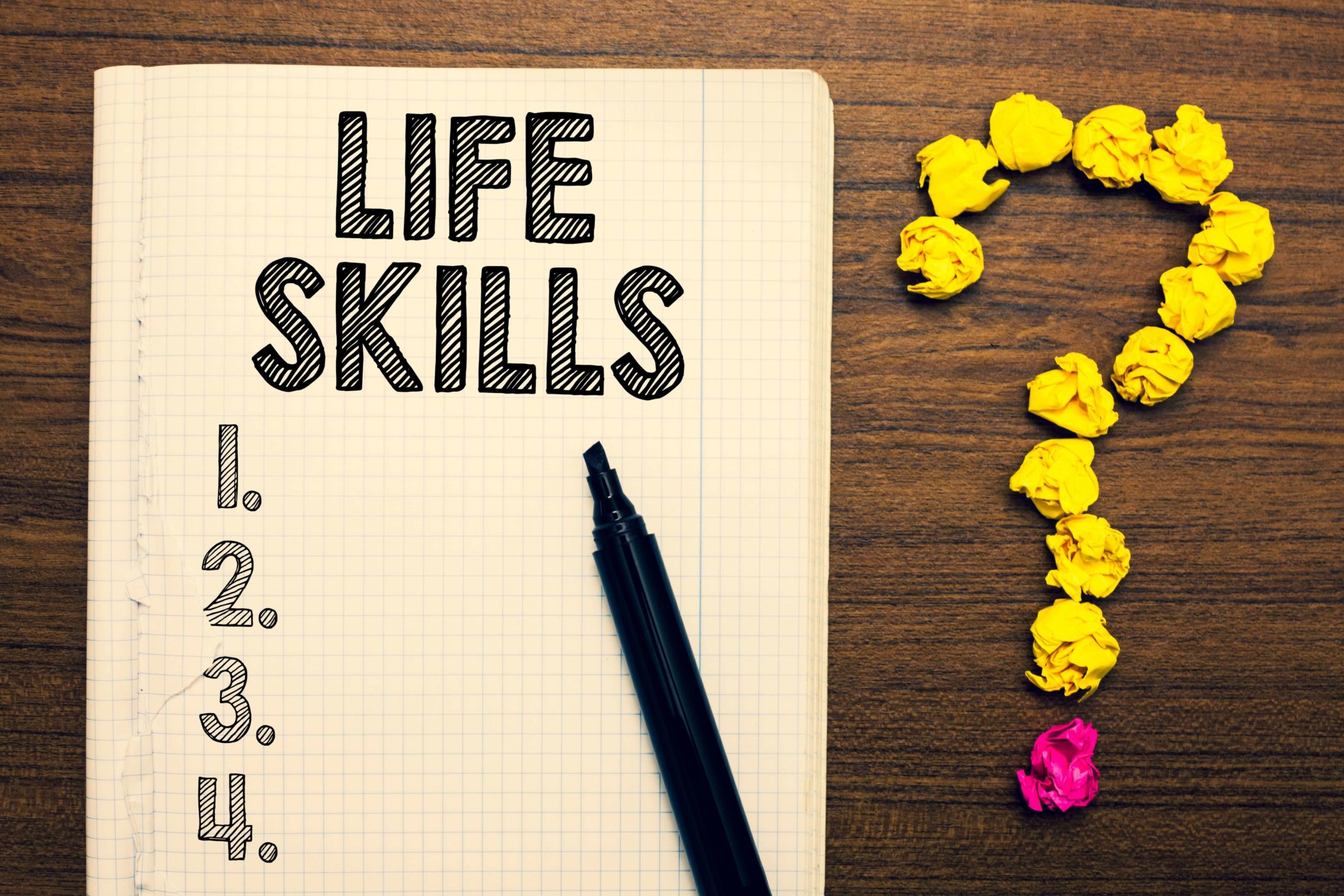In most cases, there is no single reason a person develops an addiction to drugs or alcohol. Often, a combination of factors like trauma, emotional or physical pain, genetics, an unsafe living environment, social influences, or lack of a positive support system makes a person more vulnerable to substance abuse.
Choosing recovery takes courage. Successful long-term recovery also takes commitment, by the recovering person, to understanding the root of their addiction and developing the life skills needed to live a productive, fulfilling, sober life.
What are Life Skills?
A study published in the International Journal of Preventive Medicine describes life skills as a “class of socio-psychological and interpersonal skills which help an individual to make conscious decisions, communicate effectively, improve his interactive and self-management skills and adopt an active healthy lifestyle.”
Strong life skills enable a person to function well socially and emotionally. Learning and practicing key life skills give those in recovery the tools they need to cope with triggers to past addictive behavior, recover from adversity, and make healthy choices.
Are you in recovery? Strengthening life skills can make all the difference
According to the World Health Organization, recovering individuals who work to strengthen critical life skills are more likely to achieve successful long-term recovery.
Key Life Skills
1. Self-awareness means recognizing the underlying causes of your substance addiction and working diligently to identify and manage triggers that could threaten your sobriety.
Self-awareness also helps you recognize how and why you emotionally react to specific people or other triggers to addictive behavior. Understanding yourself and your past reactions helps you to regulate your emotions and commit to new patterns of behavioral responses.
As your self-awareness improves, you are more likely to:
- Choose a healthy, stable, drug and alcohol-free environment.
- Develop a routine that encourages self-care, fosters relationships with sober people, and incorporates enjoyable sober activities.
- Accept how your past addictive behavior negatively affected personal relationships and your ability to function responsibly.
- Frequently revisit your reasons for choosing recovery and your recovery goals.
- Keep a journal about what’s going on in your life and related emotions, and practice coping skills to overcome negative responses.
2. Self-care in recovery means embracing a lifestyle that prioritizes your mental, physical, emotional, and spiritual health. Your desire for healing may include the commitment to:
- Set and work toward achievable goals.
- Live a healthy lifestyle, including good nutrition, sufficient sleep, and regular exercise.
- Practice mind-body techniques like relaxation exercises, meditation or prayer, yoga, and mindfulness. If you are feeling stressed or down, you seek to understand what triggered the negative emotion and take steps to counteract those feelings.
- Focus on positive thinking, inspirational stories, and fostering a connection to nature can lift you spiritually and mentally. Practice gratitude.
- Limit negative input from news outlets, movies, TV shows, and books, and avoid negative, toxic people.
- Build a support network of sober people who respect and appreciate your journey and who will help hold you accountable if needed.
3. Improved communication and interpersonal skills may help you repair broken relationships and form new connections with others. You facilitate healthy communication by speaking up about your feelings and needs rather than holding them in and encouraging others to express their emotions. Tips for improving communication skills include:
- Set and maintain healthy boundaries with others.
- Accept responsibility for past behavior.
- Rebuild trust by consistently doing what you say you will do.
- Break ties with negative people.
- Be open about people, places, things, or events that have triggered past addictive behavior.
- Be empathetic about how others are feeling. Practice listening to others.
- Ask for help if you need it.
4. Problem-solving, critical thinking, and effective decision-making help you make decisions based on logic and reality versus emotion and irrational beliefs. Strengthening these skills can help you:
- Set realistic goals to achieve independent living.
- Avoid or manage trigger situations, including stress.
- Control your emotions to avoid giving in to impulses. Emotional control gives you time for a thoughtful response to stressful situations and can help you avoid relapse.
- Meet employment, school, and financial responsibilities.
- Improve time management.
- Learn from past mistakes.
- Continuously hone your problem-solving skills.
5. Resilience and strong coping skills are invaluable in helping you bounce back from adverse challenges and continue toward your recovery and life goals. Resiliency helps you:
- Use coping skills to manage stressful situations or people.
- Stop the cycle of worry and stress.
- Remain optimistic despite adversity. Practice transforming negative thoughts into positive responses.
- Understand both change and challenges are inevitable in life and strengthen your confidence that you can overcome or adapt to them.
- Recognize that your support network can help reinforce your coping abilities.
Choosing recovery is the greatest gift you can give yourself and your loved ones, and it’s a journey you don’t have to take alone. Bridges of Hope offers hope and healing to anyone with an alcohol or substance abuse disorder.
Accredited by the Joint Commission as a dual diagnosis treatment center, Bridges of Hope is uniquely qualified to treat those with a substance use disorder or co-occurring substance use and mental health disorder. Joint Commission accreditation is awarded only to programs exhibiting the highest levels of patient care and safety standards.
Contact us today to learn how we can help.


 Verify Insurance
Verify Insurance
 Toll Free Call
Toll Free Call